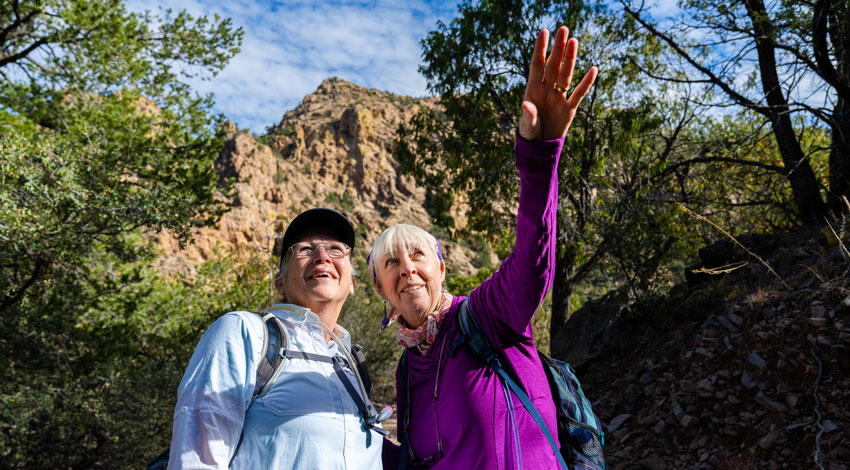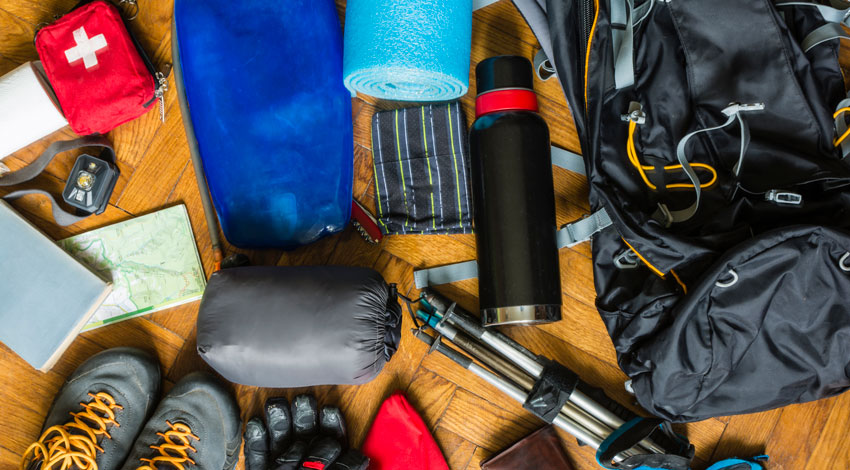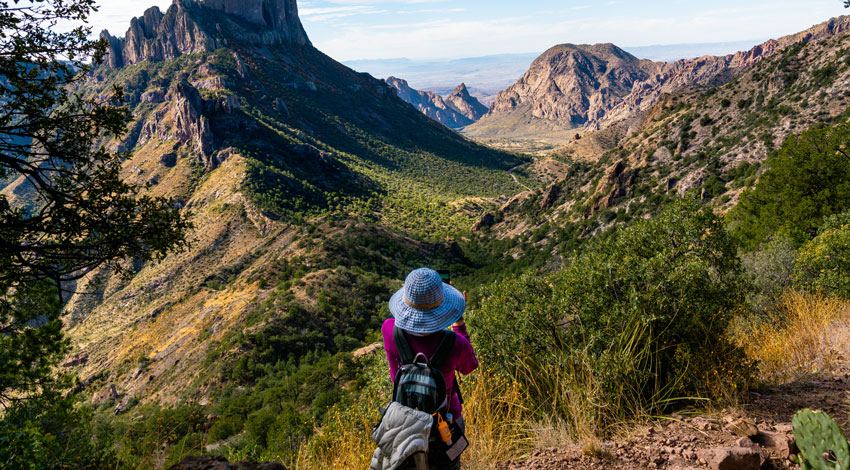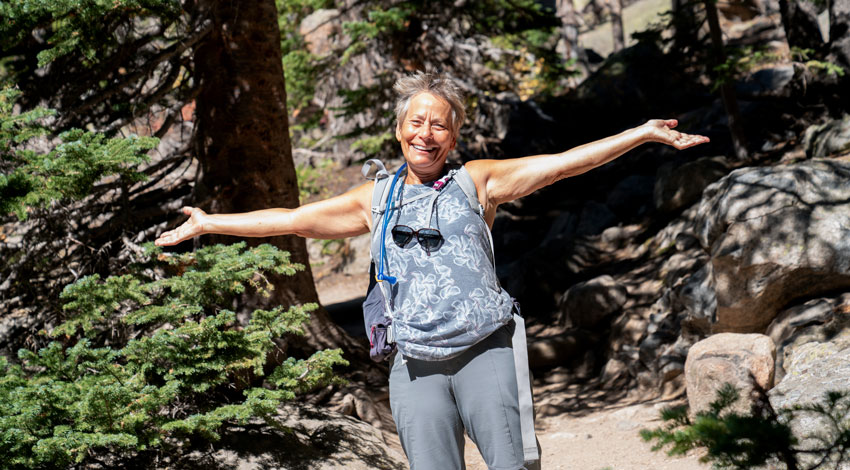Essential Hiking Tips Every Woman Must Know
Whether you’re an avid hiker or a beginner, when you're of a certain age, it is always best to check in with your doctor before you take to the trail. Hiking can be a wonderful way for women over 60 to stay active, enjoy nature, and maintain overall well-being. But before you venture out, check out these essential hiking tips for women.

Hiking Tips for Older Women
If it's been a while since you’ve hiked, start training in your neighborhood. Take daily walks and increase the length and difficulty of the hike a little each week.
Also, think about how to care for your body so you don’t inflict injury upon yourself. Arthritis of the knees is associated with age, and women are more likely to develop it than men. Trekking poles help remove pressure from your knees. Strengthening the muscles that stabilize the knee joints can also help prevent pain, so it's a good idea to build up leg strength by doing squats and lifting weights.
Here are a few of Road Scholar’s favorite hiking tips for older women:
- Never judge yourself for taking as many breaks as you need.
- Choose the right trail for you.
- Don't hike alone. Bring a friend.
- Don’t feel obligated to keep the same pace as your friend.
- Invest in good gear: for example, shorts or pants that won’t cause chafing.
- Wear good-quality footwear. Sturdy hiking shoes or boots will provide good ankle support and have a proper grip.
- Download the AllTrails app and start looking for hikes in your area. You can filter hikes by “easy” or “hard."
- Dress in layers: Dress in moisture-wicking and breathable clothing to regulate body temperature. Layer up with a lightweight jacket or fleece that can be easily added or removed as needed. Don't forget a hat, sunglasses, and sunscreen for sun protection.
- When deciding on which hike to take, be sure to check the total mileage. (How many miles is the trail out and back?) Also, check elevation gain.
- Check out trail conditions and weather before you head out. (Will there be a major downpour an hour into your hike? Will this cause muddy trails?)
- Find out whether there is cell service where you're hiking. If not, invest in a GPS tracker and security device.
- Let your loved ones know when you start out, how long it should take, and when you'll return.
- If there's a trailhead register, sign it so rangers will know to look for you if something happens.
- Bring more water than you think you'll need, especially on a warm day.
- Bring protein-rich snacks like granola bars.

What To Pack for a Day Hike
If you are looking for hiking tips for beginners, here is our list of must-have gear for a successful hiking trip:
- At least two bottles of water
- Trekking poles
- Raincoat or poncho
- Hat
- Sunglasses
- Sunscreen and lip balm
- Bug spray
- Trail snacks or lunch
- Tissues and/or toilet paper
- Compostable garbage bag for trash
- Moleskin pads for blisters
- Portable phone battery charger
- Band-Aids and antibiotic cream
- Headlamp
- Matches or lighter
- Multipurpose tool
- Compass and downloaded map
- Camera and binoculars

Checking Trail and Weather Conditions
Check the weather report before going on a hike — in any season — because you will want to know if there is wind, an unexpected cold front, or an unprecedented heat wave. This will guide you in what to wear and what gear to bring and allow you to have an excellent hiking experience.
Here are hiking safety tips to check for trail and weather conditions:
- Refer to two or three different weather app sources.
- Check the weather for three to five days before the hike.
- Take note of how windy it is; this can tell you about what kind of weather to expect in the coming days.
- Carry a barometer because air pressure changes are signs of weather changes.
- If hiking in the mountains, examine the weather at various elevations.
There are a few different ways to track trail conditions before you head out on your hiking adventure:
- Visit the park or trail system’s website for up-to-date information about trail conditions, closures, and any potential hazards.
- Contact park authorities directly for the most accurate and recent information about trail conditions, closures, and weather-related issues.
- Check hiking forums and websites for trail reports and user-generated updates on current trail conditions.
- Utilize hiking guidebooks and maps specific to the area you plan to hike for information on trail conditions and any known difficulties or closures.
- Local visitor centers, ranger stations, or outdoor gear stores may also have current information on trail conditions.

Benefits of Hiking for Older Women
Regular hiking can result in well-documented benefits for seniors, including:
- Improved cardiovascular health
- Improved circulation
- Improved balance
- Reduced arthritis, joint, and knee pain
- Increased bone density (which can improve bone health and reduce the risk of osteoporosis)
- Stronger muscles
- Decreased depression and feelings of isolation
- Increased cognitive function
- Better scores on memory tests
- Improved reaction time
Hiking With Road Scholar
Road Scholar offers hiking expeditions around the globe for people of all ages. Whether you're looking for hiking trips for beginners, seniors, or families, we have an incredible adventure waiting for you!
